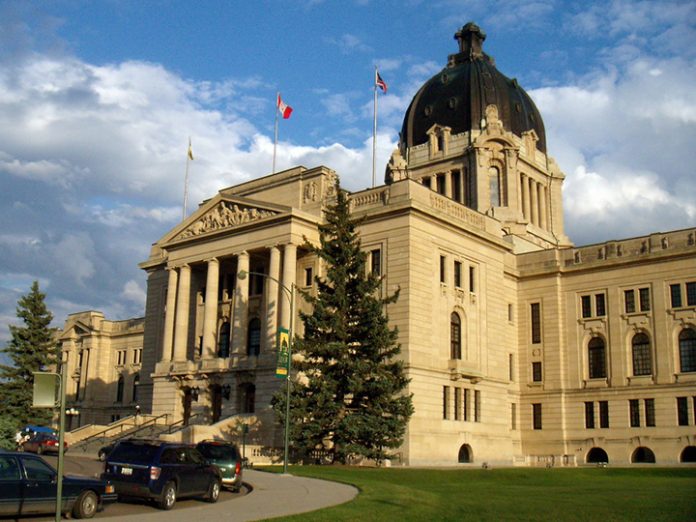Both the Saskatchewan Party and New Democrat Party have made promises to change tax on the first day of election campaigning in Saskatchewan. The NDP are committing to a wealth tax for the top 1% while the Sask. Party says if re-elected they will introduce a new home renovation tax break.
NDP Leader Ryan Meili committed to bring tax fairness to Saskatchewan by introducing a wealth tax of 1% on those with net worth of over $15 million. This measure would bring in $120 million annually to the General Revenue Fund to help pay for:
- Health care where and when you need it;
- Safer schools and smaller class sizes;
- Fixing long-term care and expanding home care to help seniors stay at home.
“Under Scott Moe and the Sask. Party, life is getting harder. Even before the pandemic hit, people were feeling stretched and stressed,” said Meili. “They want to tell you there are no options – that we have to settle for four more years of austerity, which means deep cuts to health care and education. That’s not right. It’s time for a tax plan that puts people first – not the Sask. Party’s old boys’ club.”
Based on estimates for the Parliamentary Budget Office, the Saskatchewan NDP’s proposal defines family net wealth as the total financial and non-financial assets, and subtracts their liabilities.
Meili also committed that the New Democrats would not raise taxes on everyday families.
Economist Angella MacEwan endorsed this new measure: “Ryan Meili and the Saskatchewan New Democratic Party are taking an important and timely measure to shift the tax burden onto those most able to afford it. As provincial economies recover from the impact of COVID-19, it is essential that working families are able to rely on functioning public services that meet their needs.”
Under Scott Moe’s leadership, the Sask. Party has not balanced a single budget. The last time the Sask. Party faced financial pressures, they made deep cuts while increasing the PST on Saskatchewan families by more than $700 per year. Despite this massive tax increase on everyone in the province, the Sask. Party still managed to blow the rainy-day fund on their failed pet projects:
- Regina Bypass: $1,980,000,000;
- GTH: $46,008,000 in debt, and growing;
- The failed Carbon Capture Storage boondoggle: $1,500,000,000.
“The choices made by the Sask. Party have left us much more vulnerable to moments like this. They squandered the boom and tripled the debt – and left everyday families to pay the price,” said Meili. “We don’t have to settle for Scott Moe’s cuts. We can do better – and ask the wealthiest amongst us to help ensure every family has access to the health care they need, when they need it.”
Meanwhile, the Saskatchewan Party said that if they were re-elected to government they will introduce a new Saskatchewan Home Renovation Tax Credit to make the cost of home renovations more affordable and help drive Saskatchewan’s economic recovery.
“This is our first campaign commitment and it’s part of our plan for making life more affordable for Saskatchewan people,” Premier Scott Moe said. “It’s also part of our plan for a strong recovery and a strong Saskatchewan.
“In this year’s budget, we reduced the PST on new home construction. We also want to provide a break to those who are fixing up their existing home. This new Home Renovation Tax Credit does just that.”
Moe said in addition to reducing costs to homeowners, the PST reduction on new home construction and the new Home Renovation Tax Credit will increase construction activity in the province and help drive Saskatchewan’s economic recovery.
Under the new Saskatchewan Home Renovation Tax Credit, homeowners will be able to claim a 10.5 per cent tax credit on up to $20,000 of eligible home renovation expenses incurred between October 1, 2020 and December 31, 2022, saving them up to $2100. Eligible expenses will include permanent additions to the home but will not include items like furniture, appliances, hot tubs, tools or maintenance like carpet or furnace cleaning.
The new program is estimated to cost $124 million over two years.
“That’s $124 million of direct savings to Saskatchewan people,” Moe said. “It’s an incentive to spend, build and hire, which helps drive a strong recovery. This is on top of $7.5 billion in infrastructure investments over two years to build hospitals, schools and highways and support over 27,000 jobs in Saskatchewan.
“A strong economic recovery, more jobs and making life more affordable for Saskatchewan homeowners – it’s part of our plan for a strong Saskatchewan.”
The provincial election will take place Monday, October 26.










